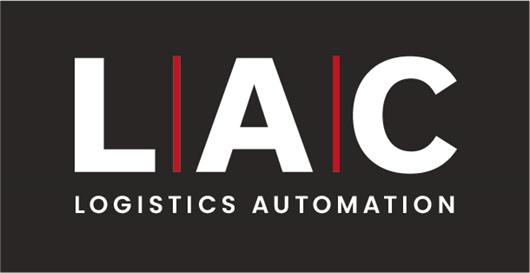The e-commerce revolution has reshaped the way we shop and do business. With the click of a button, consumers can now purchase products from around the world and have them delivered to their doorstep in a matter of days. Behind this seamless online shopping experience lies a crucial and often overlooked component: The modern conveyor. These sophisticated conveyors play a pivotal role in enabling the e-commerce boom by optimising order fulfilment, streamlining logistics, and ensuring rapid delivery.
At LAC Logistics Automation we are proud to provide conveyor systems to a host of e-commerce giants including Amazon, Tesco, TK Maxx and many more in this article, we’ll explore how the utilisation of modern conveyors has been a driving force behind the e-commerce revolution and how the features of the myriad of types of different conveyors has enabled the e-commerce industry to flourish.
Firstly let us explore what a conveyor brings to dark stores and warehouses across the globe that allows them to be the efficient distribution hubs that allow e-commerce companies to operate.
Factors that Enable Conveyors to be Efficient for Distribution
Speed and Efficiency
E-commerce is all about speed. Customers expect their orders to be processed, packed, and shipped with lightning-fast precision. Modern conveyors are designed for exactly this purpose. They automate the movement of products through warehouses and distribution centres, significantly reducing the time it takes to pick and pack orders. This efficiency ensures that orders can be processed quickly, meeting the demands of the “I-want-it-now” online shopper.
Scalability
The scalability of modern conveyors is a game-changer for e-commerce businesses. As demand surges during peak seasons like Black Friday or the holiday shopping rush, these systems can be easily adjusted to handle increased workloads. Conveyors are modular, allowing businesses to expand their operations without the need for massive infrastructure investments. This flexibility is a crucial element in the e-commerce revolution, enabling businesses to grow rapidly and adapt to changing market conditions.
Accuracy and Order Fulfilment
Order accuracy is paramount in e-commerce. Modern conveyors are equipped with advanced technology such as barcode scanners and automated sorting systems. These technologies ensure that the right products are picked, packed, and shipped to the right customers. Fewer errors mean happier customers and reduced costs associated with returns and customer service inquiries.
Inventory Management
Effective inventory management is a cornerstone of successful e-commerce. Conveyors are integral to this process. They help track inventory levels in real time, making it easier for businesses to restock popular items and reduce the risk of overselling. This level of control is essential in maintaining customer trust and ensuring that products are consistently available.
Multiple Fulfilment Models
E-commerce businesses often employ various fulfilment models, including dropshipping, third-party logistics (3PL), and in-house fulfilment. Modern conveyors are adaptable and can be integrated into different fulfilment models seamlessly. Whether products are stored in-house or at a 3PL facility, conveyors ensure efficient movement and timely delivery to the end customer.
Returns Processing
Returns are an inevitable part of e-commerce. Modern conveyors play a critical role in the returns process. They help route returned items efficiently, ensuring that products are inspected, restocked, or refurbished as needed. This quick turnaround in the returns process enhances customer satisfaction and minimises losses for e-commerce businesses.
Cross-Docking
Cross-docking is a logistics strategy where products are transferred directly from inbound to outbound transportation, bypassing storage. This approach reduces storage costs and speeds up order fulfilment. Modern conveyors are ideal for facilitating cross-docking operations, enabling e-commerce businesses to get products into the hands of customers faster and more cost-effectively.
Last-Mile Delivery
The last mile of delivery, from a distribution centre to the customer’s doorstep, is often the most challenging and costly part of the e-commerce supply chain. Modern conveyors are instrumental in optimising last-mile delivery. They help sort and route packages for final delivery, reducing transit times and transportation costs. Additionally, conveyors can be integrated with other technologies like autonomous delivery vehicles, further enhancing last-mile efficiency.
E-commerce has transformed the way we shop, and the rapid growth of online retail has led to an increased demand for efficient warehouse and logistics operations as well as the range of different conveyor solutions that are required for the smooth operation of these logistics hubs.
Conveyors play a pivotal role in streamlining these processes, so it is worthwhile exploring the different types and their applications within the operations of a successful dark store.
- Belt Conveyors
Belt conveyors are a fundamental conveyor type used in e-commerce warehouses. They consist of a continuous belt made of rubber, fabric, or metal that moves over a series of rollers. Belt conveyors are versatile and suitable for many products, from small items to bulk goods. They are often used for the transportation of products between different stages of the order fulfilment process.
- Roller Conveyors
Roller conveyors are another staple in e-commerce logistics. These conveyors use a series of rollers to move products along the conveyor line. They are ideal for applications that require the accumulation of products or cases and are commonly used in packaging, sorting, and loading operations.
- Sortation Conveyors
These are designed to automate the process of sorting products based on predefined criteria such as destination, size, or weight. They utilise various mechanisms, including diverts, pop-up wheels, and pushers, to direct products to their designated chutes or lanes. Sortation conveyors are indispensable in e-commerce warehouses for routing items to the correct shipping area.
- Slider Bed Conveyors
Slider bed conveyors have a flat, stationary surface (the bed) over which a belt or chain slides. These conveyors are excellent for transporting smaller, fragile items or products with irregular shapes. They are commonly used in e-commerce operations for packaging and order assembly.
- Flexible Conveyors
Flexible conveyors are adaptable and expandable conveyor systems that can be extended or contracted as needed. They are highly versatile and suitable for loading and unloading trucks, as well as for moving products within a warehouse or distribution centre. The ability to adjust their length makes them valuable in e-commerce logistics, where order volumes can fluctuate.
- Vertical Conveyors
Vertical conveyors, also known as vertical lifts or elevators, are used to move products between different levels within a warehouse or logistics centre. They are especially useful in multistory facilities, optimising space utilisation and reducing the need for manual lifting and carrying of goods.
- Spiral Conveyors
Spiral conveyors are designed to transport products in a continuous upward or downward spiral motion. These conveyors save valuable floor space and are employed in e-commerce facilities to move products between different levels or create efficient picking and sorting systems.
- Automated Guided Vehicles (AGVs)
While not traditional conveyors, AGVs are essential in e-commerce warehouses and logistics centres. These autonomous vehicles move products within the facility, often replacing the need for fixed conveyor systems in certain applications. AGVs are flexible and can adapt to changing layouts and workflows, making them invaluable in the dynamic world of e-commerce.
The e-commerce revolution is only possible with the utilisation of modern conveyors. These systems are the silent heroes of the online shopping experience, working tirelessly behind the scenes to ensure that products are picked, packed, and delivered with speed, accuracy, and efficiency. As e-commerce continues to evolve and grow, the role of modern conveyors will only become more critical. They are the backbone of the e-commerce supply chain, enabling businesses to meet the ever-increasing demands of consumers and providing a seamless shopping experience that has come to define the e-commerce revolution.
However, designing and installing ecommerce logistics solutions can be a daunting task as they rely on a variety of conveyor systems to optimise their operations. This is why systems integrators like LAC Logistics Automation exist to help you create a holistic e-commerce solution that suits your business and provide ongoing support to help keep your logistic chain moving. Get in touch with us today!



